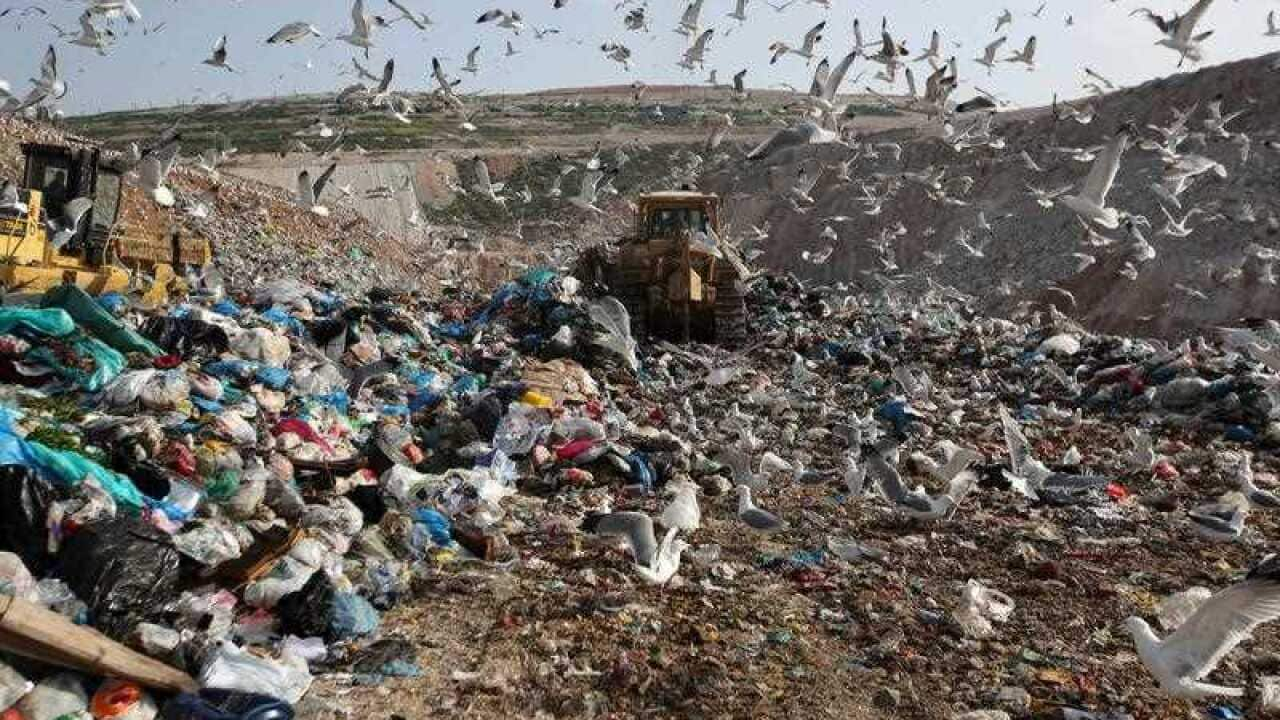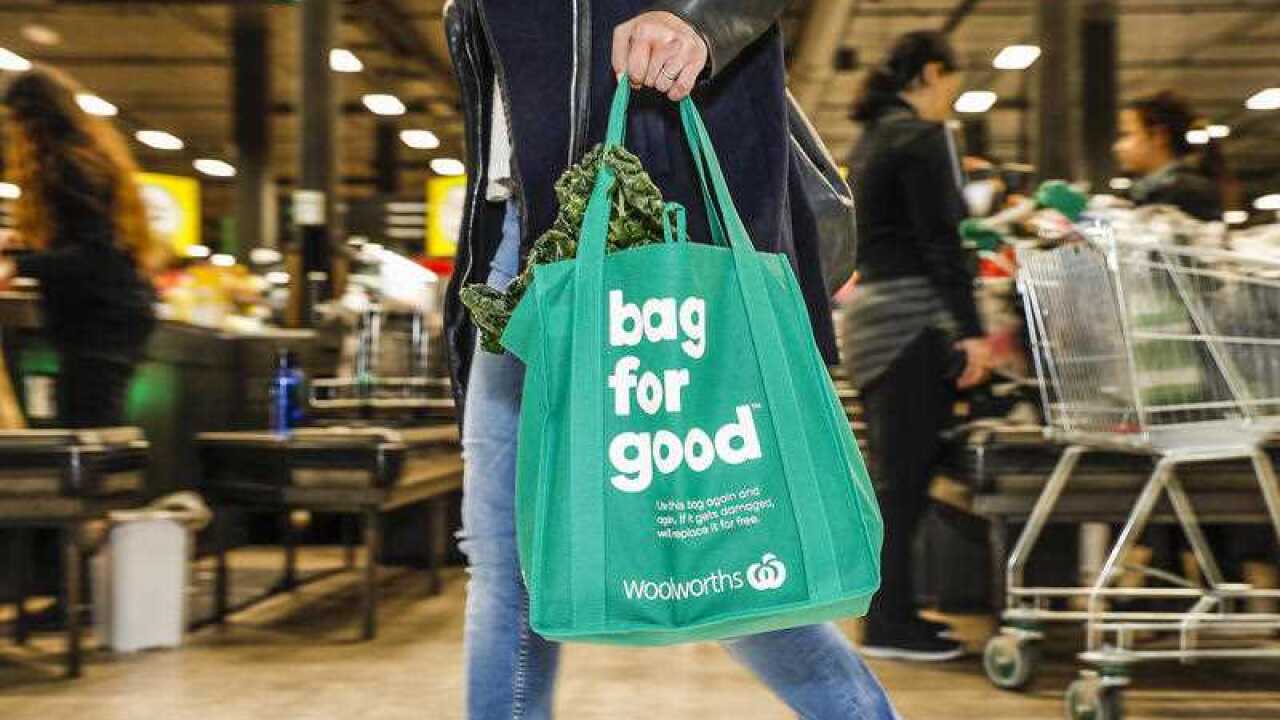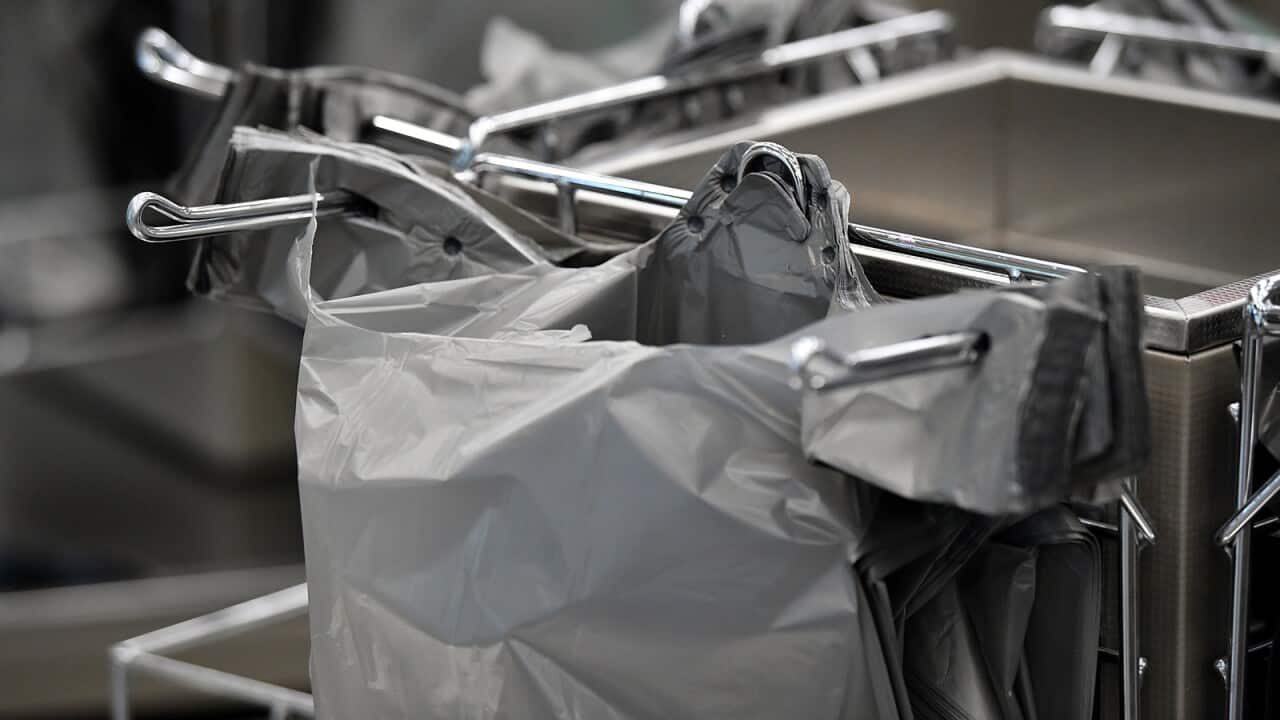In December 2018, India was thefor Australia’s plastic waste, buying 13 per cent of its total recyclable exports.
Besides Australia, it was also accepting plastic waste from 50 other countries including the UK, US, Germany and Japan, putting it among the top 10 plastic scrap importers in the world.
But now, following in China’s footsteps, India, too, has said 'no more'. The Indian government has put a blanket ban on the import of solid plastic waste into the country, leaving the global recycling industry with one less recycling avenue after China, which had imposed a similar ban in 2018.
The Indian government has put a blanket ban on the import of solid plastic waste into the country, leaving the global recycling industry with one less recycling avenue after China, which had imposed a similar ban in 2018.

Girls scavenge for plastic and other items that can be sold to scrap dealers, at a garbage dump on the outskirts of New Delhi, India, Thursday, April 22, 2010. Source: AAP
However, it's not the first time that India has banned the import of plastic scrap.
In 2016, it had imposed a similar ban but later that year it made some exceptions, allowing Export Oriented Units (EOUs) and companies in Special Economic Zones (SEZs) to operate.
But this time, India has exacted a complete ban on such imports in a bid to reduce the gap between the country’s waste generation and recycling capacity and to fulfil its commitment to completely phase out single-use plastic by 2022.
At present, India produces nearly 26,000 tonnes of its own plastic waste every day, according to a study conducted by the
But at least 40 per cent of the waste remains uncollected due to lack of optimum recycling facilities so it ends up in incinerators or landfills instead, thereby contaminating the natural environment. None of this bothers 17-year-old Kumar who has spent much of his grown-up life handpicking and selling trash at a disposal facility at Dadumajra, near Chandigarh in northern India.
None of this bothers 17-year-old Kumar who has spent much of his grown-up life handpicking and selling trash at a disposal facility at Dadumajra, near Chandigarh in northern India.

Workers sifting through garbage at a disposal facility in India Source: Facebook/Civil Service India
Kumar and his friends who often scour the landfill sites for a “good piece of trash” without any safety gear told SBS Punjabi that they earn 20 cents for every piece of junk they manage to sell to traders for further recycling.
When we informed him about the Indian government’s decision to place a ban, he was nonplussed.
“Nothing will change on the ground didi (sister).”
“Rubbish piles may reduce, but they will never cease to exist as long as the plastic is being manufactured,” said Kumar. While the decision to ban the import may take a little while to hit the ground, Satish Sinha, the associate director at non-profit Toxics Link told the that the ban is likely to increase the load on other Asian countries such as Malaysia, Thailand and Vietnam which are still accepting foreign scrap.
While the decision to ban the import may take a little while to hit the ground, Satish Sinha, the associate director at non-profit Toxics Link told the that the ban is likely to increase the load on other Asian countries such as Malaysia, Thailand and Vietnam which are still accepting foreign scrap.

A man collects plastic and other recyclable material from the shores of Mumbai, littered with plastic bags and other garbage. Source: AAP
"I really don't see this will have a drastic impact on the livelihood of people in the industry. India generates enough plastic and a major chunk of recycling is handled by informal players," said Mr Sinha.



